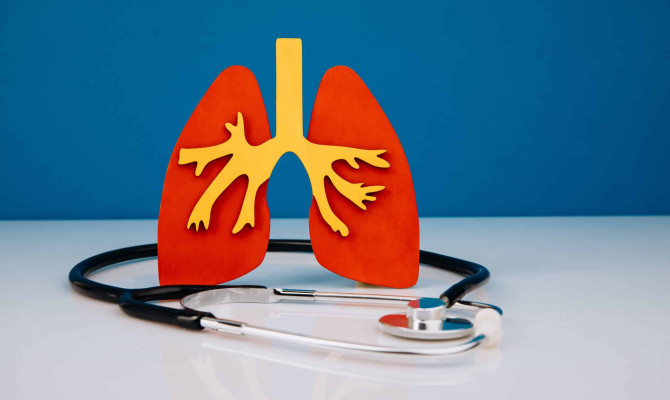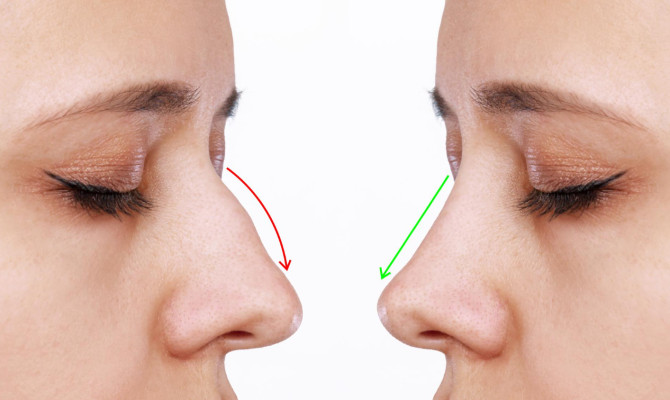Understanding Obesity: Causes and Management

- Obesity
- 17 Aug 2023
Overview
What is Obesity?
Obesity is a complex medical disorder that causes adverse health effects due to an abnormal or excessive buildup of body fat1Overview| Researched based study from Nlm.nih.gov
It has become one of the twenty-first century’s most severe risks to world health. This article thoroughly analyzes Obesity, including its definition, causes, and effects on health, and proposes preventative measures.

Causes

What are the causes?
- Genetic factors
- Environmental factors
- Stress
- Low socioeconomic factor
- Medical conditions
- Sedentary lifestyle
- Dietary choices
The impact factor for the international journal of Obesity in 2022–2023 was 5.551. The results showed a growth over the two previous years.3Causes| Researched based study from Academic-accelerator.com
It is a complicated medical issue with various potential causes and aggravating elements. Its widely accepted that an imbalance between calories consumed and burned leads to obesity. A person gains weight and eventually develops Obesity when continually consuming more calories than they expend via exercise and metabolism. The extra calories are then stored as fat in the body.1Causes| Researched based study from Nlm.nih.gov
Genetic factors
- There might be a hereditary tendency to Obesity in specific individuals. Appetite, metabolism, and how fat is stored in the body can all be impacted by particular genes.
Environmental factors
- Our eating habits and levels of exercise can be influenced by the environment we live in. Elements like easy availability of unhealthy foods, sedentary habits, and inactive urban planning may cause weight gain.
Psychological factors
- Stress, despair, and worry are examples of emotional issues that can affect eating habits and cause overeating or comfort eating.
Economy and society.
- Obesity rates can be impacted by socioeconomic position. Access to healthy, cheap food alternatives and chances for physical activity may be restricted for those with lower income.
Medical issues
- Weight gain and obesity can be caused by many medical disorders, including hypothyroidism, polycystic ovary syndrome (PCOS), and several drugs.
Lifestyle and dietary habits
- Weight gain may result from eating a diet heavy in calories, bad fats, added sweets, and processed foods. These meals frequently have high energy content but few nutrients, which promotes overeating and weight gain.
Sedentary life
- It can be affected by leading a sedentary lifestyle or not getting enough exercise. People who do not regularly exercise or participate in physical activity burn fewer calories, which makes it simpler to gain excess body weight.1Causes| Researched based study from Nlm.nih.gov
Measuring Obesity
How is Obesity measured?
The Body Mass Index (BMI) is often used as a screening tool to assess obesity. It is calculated by dividing a person’s weight in kilograms by the square of their height in meters.
- Underweight: BMI less than 18.5 kg/m2
- Average weight: 18.5 kg/m and 24.9 kg/m2
- Overweight: BMI between 25 kg/m and 29.9 kg/m2
- Obesity: equal to or greater than 30 kg/m2.
Although BMI offers a quick and straightforward method for assessing body fatness, it does not directly measure body fat or take into factors like muscle mass, bone density, or fat distribution. It may not be accurate for some individuals, such as sportsmen with high or older people with low muscle mass.
Effects
How does being obese affect my body?
Obesity may, directly and indirectly, impact the body, resulting in various symptoms and negative health consequences. Here are some common effects it may have on the body:2Effects| Researched based study from Nlm.nih.gov
On cardiovascular system
- It increases the risk of developing heart disorders such high blood pressure, heart disease, and stroke. The heart is strained by excess weight, increasing its effort and the risk of cardiac problems.
On metabolic process
- It is associated with metabolic syndrome, a collection of diseases characterized by elevated blood pressure, high blood sugar, abnormal cholesterol levels, and extra abdominal fat. This increases the risk of type 2 diabetes.
On respiratory system
- Obese persons may have smaller lungs and more frequent shortness of breath. There are also increasing cases of diseases like sleep apnea, characterized by breathing interruptions while you sleep.2Effects| Researched based study from Nlm.nih.gov
Effect on musculoskeletal system
- The pressure of carrying too much weight on the joints can cause diseases like osteoarthritis. Obese persons may also struggle with mobility, physical activity, and back and joint problems.
Impact on digestive system
- It increases the possibility of developing diseases, including GERD, fatty liver disease, and gallbladder disease.
Effect on reproductive and hormonal system
- It can throw off the body’s hormonal equilibrium, resulting in diseases like polycystic ovarian syndrome (PCOS) in women, which can affect fertility and cause irregular menstruation.
Emotional impact of obesity
- Mental health can exacerbate emotional and psychological problems, such as poor self-esteem, despair, and anxiety.2Effects| Researched based study from Nlm.nih.gov
Increased cancer risk
- Breast, colon, kidney, and pancreatic cancers have all been linked to an elevated risk.2Effects| Researched based study from Nlm.nih.gov
Treatment
Treatment of Obesity
Modifying one’s lifestyle is frequently the initial step in treating Obesity. However, in rare circumstances, a thorough treatment plan may include consideration of medication or surgery.
Here is a summary of the many medical and surgical methods for treating Obesity.
Medicines
- Medications are frequently given when lifestyle modifications alone are ineffective for achieving weight loss objectives.
- These function by decreasing fat absorption, promoting fullness, or suppressing appetite.
- They should be taken with a doctor’s approval and are typically provided as a part of comprehensive weight management programs.
- Orlistat, phentermine, liraglutide, and naltrexone/bupropion are a few examples of weight loss drugs.5Treatment| Researched based study from Nlm.nih.gov
Bariatric surgery
- For those with extreme Obesity (usually defined as a body mass index of 40 or higher) or an MBI of 35 or higher with obesity-related diseases, it is considered.
- To encourage weight reduction, the digestive system must be modified.
- Standard surgical techniques include gastric banding, gastric bypass, and sleeve gastrectomy.
- Significant weight loss and improvements in obesity-related health conditions like diabetes, high blood pressure, and sleep apnea are possible outcomes of these operations.
- It is a significant operation that should only be considered after severe consideration and conversation with a healthcare practitioner.6Treatment| Researched based study from Nlm.nih.gov
Lifestyle
Obesity lifestyle modifications
Changes in lifestyle are necessary to manage obesity; a few recommendations are as follows:
Healthy eating habits
- The primary goal should be to have a varied diet that includes fruits, vegetables, whole grains, lean meats, and healthy fats.
- Limit your consumption of processed foods, fried foods, sugary drinks, fried foods, and foods high in saturated and trans fats.
- Practice portion management by being aware of serving sizes and avoiding super-sized servings.
Exercise regularly
- To burn calories and strengthen your cardiovascular system, partake in frequent aerobic exercises like walking, running, cycling, swimming, or dancing.
- Workouts involving strength training should be done to improve body composition, increase metabolism, and build muscle.
- In addition to muscle-building activities, try to do at least 150 minutes of aerobics with a moderate intensity or a minimum of 75 minutes of high-intensity aerobic exercise per week.
Behavior modification
- Keep a food journal to track eating habits, find overeating triggers, and measure improvement.
- By enjoying food, eating without interruptions, and paying attention to hunger and fullness cues, you may practice mindful eating.
- Create healthy coping mechanisms for stress, boredom, or emotional overeating. These coping mechanisms include indulging in hobbies, using relaxation methods, or asking friends and family for help.
Sleep enough
- Each night, try to get 7-9 hours of good sleep.
- Sleep deprivation has been linked to increased appetites and weight gain because it might disturb the hormones that regulate hunger.
Support system
- Ask your friends, family, or a support group for assistance if you want to keep motivated and energized.
- Consider working with a certified dietician or medical practitioner specializing in weight control for individualized advice and assistance.
A gradual and sustainable approach
- Avoid extreme diets and other weight-loss methods that promise quick results since they are frequently unsustainable and may harm general health.
- Make long-term, progressive modifications to your food and exercise routines for sustainable benefits.4Lifestyle| Researched based study from Nlm.nih.gov
Any feedback on this article?
 This Articles content was accurate
This Articles content was accurate Very Informative Article
Very Informative Article I have a question or a comment
I have a question or a comment
 This article contains inaccurate content
This article contains inaccurate content This article was not helpful
This article was not helpful I have a question or a comment
I have a question or a comment
We appreciate your helpful feedback!
Checkout our social pages
References
-
National Library of Medicine
Obesity | Overview | Causes
-
National Library of Medicine
Health impacts of Obesity | Effects
-
Academic-accelerator
Latest Journal's Impact IF - Trend · Prediction · Ranking · Key Factor Analysis | Causes
-
National Library of Medicine
Lifestyle Modification for Obesity | Lifestyle
-
National Library of Medicine
Pharmacologic Treatment of Overweight and Obesity in Adults | Treatment
-
National Library of Medicine
Bariatric surgery | Treatment






































